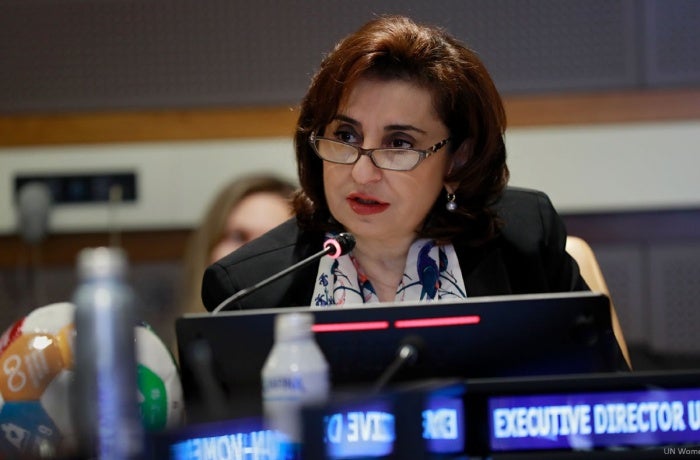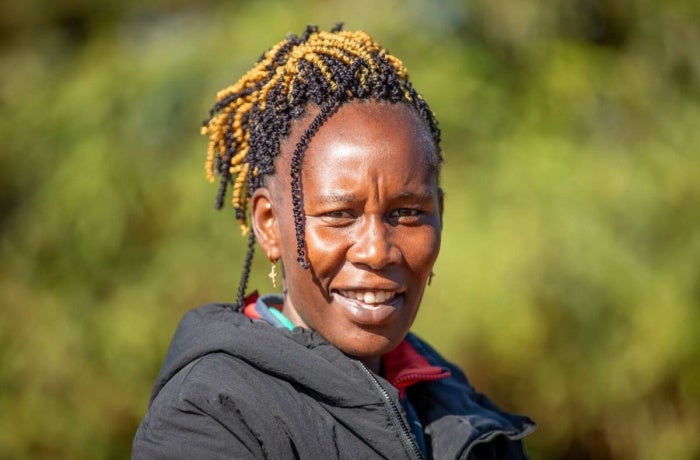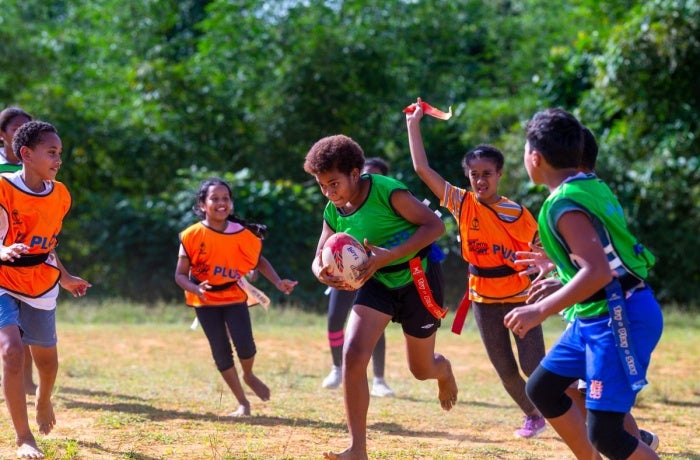Op-ed: Sport is a key driver of social change
We live in a world that is fundamentally interconnected, where diseases have no borders and wars in one part of the world cause food, fuel and inflation crises in far-distant continents. The dire consequences are most acute for women and girls and can be seen in the reversal of recent progress on gender equality—and on all the Sustainable Development Goals (SDGs). We need to change course—and move faster. Without change, it could take close to another 300 years to achieve full gender equality. Our sights are set on a much closer date—2030—the endpoint for achievement of the SDGs. At this halfway marker, it’s time for solidarity as we shape our responses and aim for acceleration, not reversal of gains. It’s time to invest intentionally—and better—in women and girls.
Sport mobilizes and energizes the global community. It speaks a common language of aspiration and inspiration to youth. In our conflict-and crises-ridden world, it unites across national barriers and cultural differences and helps teach participants the skills and resilience necessary to advance in life. Girls who play sport develop self-esteem, learn to overcome adversity, and to work in teams. They tend to stay in school longer, delay pregnancy, and get better jobs. They develop leadership skills that can propel their careers to the highest levels.
Commenting on the unifying power of the Olympic Games, IOC President Thomas Bach noted: “If sport can play a role in society today, it is precisely in strengthening the areas of cooperation for peace between nations. In this way sport can give all of us, and especially young people everywhere, the hope for a better, more peaceful future.“
The International Olympic Committee (IOC) has long stood for unity in diversity, as its new motto, “Faster, Higher, Stronger—Together” underlines. I welcome the IOC Olympism 365 strategy that intentionally strengthens the role of sport as an important enabler for the SDGs.
Since 2015, UN Women has been working to drive gender equality in and through sports with the IOC, through three interlinked strategies: 1) support to girls to play sport and benefit from it; 2) policy changes to promote and institutionalize gender equality in sport; and 3) harnessing the global platform that the Olympic Games offers of role modelling to inspire this and future generations to understand that ‘if you can see it, you can be it’.
Our joint, scalable programme, ‘One Win Leads to Another’ teaches both sport and life skills to girls in vulnerable communities. A legacy of the 2016 Rio Olympic Games and the 2018 Youth Olympic Games in Buenos Aires, the programme and its online course enable girls to become agents of change in their families and communities.
This is just one of the ways in which UN Women and IOC are working hand in hand to prevent and address violence against women and girls, supporting the education of girls and communities on how to recognize and stand up to violence. I also welcome and encourage the IOC’s efforts to safeguard sport more broadly in the Olympic Games and the Olympic movement.
At a global policy level, in 2021, UN Women and the IOC launched the Sport for Generation Equality Principles to harness the power of the sport ecosystem to deliver on the unfinished business of gender equality and the SDGs. The Principles have been integrated into the Olympic Agenda 2020+5 and are accompanied by the Guidelines for Gender-Responsive Sports Organizations, as a practical implementation tool.
Having women’s voices at the decision-making table in sport is crucial. It is a fundamental prerequisite for advancing policies and investments that promote and institutionalize gender equality. President Bach has led the way in the IOC by appointing an equal number of women and men—for the first time—to its 546 IOC commission positions in September 2022. A record high of 41% of the commissions are chaired by women in 2022, up from 26.6% in 2014. This is a vital precedent for others to follow.
It was committed leadership at the IOC that resulted in the Tokyo 2020 Olympics being the most gender-equal Olympics in history, with women representing 49% of athletes, with men and women carrying national flags together into the Olympic stadium for the first time. In another first, all 206 competing nations had at least one woman on their teams, and there were more women’s events—and consequently more women Olympic medalists—than ever before. The games projected a clear image of women’s equality, and solidarity between men and women to achieve it. This was a resounding precedent that I hope to see repeated in Paris in 2024. More women stepping up to the Olympic pedestal has an enormous worldwide influence on popular culture and public perception, helping generate a virtuous cycle of enhanced perceptions of women, in all their diversity. This in turn can contribute to changes in public policy and support our focus on challenging and changing the harmful social norms that are root causes of gender inequality.
While there is momentum for change, there is still much to do. We celebrate important advances in the world of sport, but its full potential as a driver for gender equality has yet to be fulfilled. Male dominance in sport continues to show up in bias against women and girls and inequality in terms of pay, investment, leadership, media presence and barriers for women and girls to participate on equal terms.
So let us work as a team to set this straight. Sport is an unrivalled asset to help us to end all forms of discrimination and violence against women and girls and ensure women’s full and equal participation in leadership and decision-making. There can be no higher goal, and no greater win for us all.









